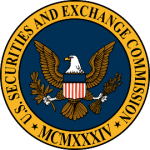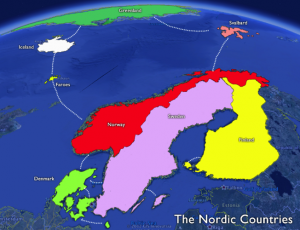Updates
As of July 19, 2024, the Amplify High Income ETF went from passively tracking an index of the top 45 US closed-end funds to tracking the top 60.
Briefly Noted . . .
 The US Securities and Exchange Commission reserves the right to study any proposed fund offering for 70 days before the adviser is permitted to offer the fund for sale to the public. During that time, (a) the SEC might require substantive or editorial changes to the fund’s prospectus and (b) the adviser is permitted to say nothing about the fund beyond “please read the applicable SEC filings.” Advisers can open up only after passing the 70-day deadline for the SEC to object.
The US Securities and Exchange Commission reserves the right to study any proposed fund offering for 70 days before the adviser is permitted to offer the fund for sale to the public. During that time, (a) the SEC might require substantive or editorial changes to the fund’s prospectus and (b) the adviser is permitted to say nothing about the fund beyond “please read the applicable SEC filings.” Advisers can open up only after passing the 70-day deadline for the SEC to object.
MFO routinely tracks funds in the pipeline to give readers a heads-up about opportunities to learn more and to invest. This month saw an array of interesting, and occasionally fascinating, filings. Among the funds that caught our eye:
The Bridgeway Global Opportunities Fund will be a global long/short equity fund. Bridgeway is a dedicated quant shop, and the long portfolio here will be a global collection of growth-at-a-reasonable-price stocks. The short portfolio will be … hmmm, stocks that have some combination of weak growth and high prices. (They’re surprisingly common.) The managers will seek to create a market-neutral portfolio, which they oddly call “dollar neutral,” so that the overall performance of the fund depends on the net performance of its long and short positions. They will not hedge their currency exposure, which might materially affect performance. There will be four portfolio managers, Jacob Pozharny, PhD, John Montgomery, Christine L. Wang, and Elena Khoziaeva. Expenses will be 6.17% after the fee waiver, of which 4.5% are dividend and interest expenses on the short portfolio. As hurdles go, 6.17% looks a lot like the Great Wall of China.
Brookmont Catastrophic Bond ETF (ROAR) will invest at least 80% of its net assets (plus the amount of borrowings, if any) in catastrophe bonds. The insurance industry defines “catastrophes” as events that cause $25 million or more in insured property losses, 10 deaths, 50 injuries, and/or 2000+ insurance claims. The number of natural catastrophes is soaring (the average year used to see $30 million in losses, the past three years have averaged $100 million with all those numbers adjusted for inflation) and is unpredictable year-to-year. In the long term, insurance companies deal with catastrophes by raising rates and cutting coverage. In the short term, they hedge their risks by issuing catastrophe bonds. Catastrophe bonds, also known as event-linked or insurance-linked bonds, are structured securities whereby insurers or reinsurers transfer specific risks, typically those associated with severe events such as catastrophes or natural disasters, to capital market investors. These investments also may cover risks such as mortality, longevity, and operational risks. Ethan Powell will be the portfolio manager. Expenses have not yet been disclosed.
Calamos Laddered S&P 500® Structured Alt Protection ETF will provide a US large-cap equity market while attempting to limit downside risk through a laddered portfolio of twelve Calamos S&P 500 Structured Alt Protection ETFs. The term “laddered portfolio” refers to the fund’s investment in multiple buffered funds that have target outcome period expiration dates which occur on a rolling basis. In theory, the “laddered” nature of the investments in the ETFs creates diversification of the investment time period which is intended to mitigate the risk of failing to benefit from the downside protection of a single ETF due to the timing problems. Eli Pars, Jason Hill, David O’Donohue, Jimmy Young, and Anthony Vecchiolla will be the co-portfolio managers. Expenses have not been disclosed.
 CrossingBridge Nordic High Income Bond Fund will invest in … ummm, high-yield bonds issued, originated, or underwritten out of the Nordic Countries (look to the right if you’re fuzzy on the team). Those securities might include corporate, governmental, and quasi-governmental bonds. The corporate category will include fixed or floating-rate bonds, zero-coupon bonds, and convertible bonds.
CrossingBridge Nordic High Income Bond Fund will invest in … ummm, high-yield bonds issued, originated, or underwritten out of the Nordic Countries (look to the right if you’re fuzzy on the team). Those securities might include corporate, governmental, and quasi-governmental bonds. The corporate category will include fixed or floating-rate bonds, zero-coupon bonds, and convertible bonds.
Two primary risks are default and currency. The managers control default risk by selecting securities of issuers that they believe will pay interest and principal regardless of their credit rating. They might even buy securities from firms in bankruptcy if the liquidation value of the corporation exceeds its total debt. And the managers will typically hedge their currency exposure. David Sherman and Spencer Rolfe are serving as the portfolio managers. Expenses have not been stated.
Virtus KAR Mid-Cap ETF will invest mostly in US mid-cap stocks that “have a sustainable competitive advantage, strong management and low financial risk and to be able to grow over market cycles.” The goal is risk-managed capital appreciation. Jon Christensen, CFA, and Craig Stone, both employees of the subadviser, Kayne Anderson Rudnick Investment Management, LLC, will be the portfolio managers. The same duo manages the five-star Mid-Cap Core and four-star Small-Mid Cap Core funds. Expenses have not been stated.
Small Wins for Investors
Brown Capital Management has eliminated the 2% fee on its International All Company and International Small Company funds effective July 25.
The investment minimum on the AAA and Advisor classes of Gabelli ABC Fund has dropped from $10,000 to $1,000.
Morningstar celebrates “3 Great Funds That Just Reopened to New Investors” (7/30/2024). Russel Kinnel, their director of manager research, describes himself “As a contrarian, [who] likes to buy funds when they reopen because it usually means they invest in an out-of-favor area and their capacity challenges have diminished.” The three funds he commends to your attention are:
Both Primecap funds have risk-adjusted performance in the top tier of their Lipper peer groups for the past decade, with Primecap Core earning the Great Owl designation for top-tier performance across all trailing measurement periods. New Horizons has been a laggard, while still returning over 10% annually for the past decade.
Closings (and related inconveniences)
Hmmm …
Old Wine, New Bottles
Effective September 1, 2024, Baron New Asia Fund becomes Baron India Fund. Indian stocks occupy half of New Asia’s portfolio, approximately three times as much as its peers hold. The fund launched in July 2021 and has been underwater since inception despite returning 20% YTD returns (through 7/5/2024).
Gabelli Financial Services Opportunities ETF is transitioning from a semi-transparent or non-transparent ETF into a transparent ETF that will disclose its portfolio holdings daily. The “non-transparent” designation is used by managers who are fearful of front-running; that is, larger funds often need to buy or sell holdings slowly in order to avoid disrupting the market for those shares. If, on Monday, it becomes clear that a certain fund will be buying shares for the next two or three days, hedge funds will swoop in and buy them ahead of the ETF purchases. The ETF is forced to buy somewhat more expensive shares because of the front-running, and their purchases temporarily drive up the share price further. The hedge funds then cut and run, pocketing a profit at the expense of the fund shareholders. The non-transparent structure is a bit of a headache and imposes a bit of overhead, so funds increasingly sacrifice whatever protection it offers them.
The “Mainstay” funds name will not be a “mainstay” anymore. The Mainstay name will be changed to NYLI for New York Life Investments on or about August 28. The name change will affect numerous equity and bond funds. A list of the funds involved in changing its names are posted on the board.
Off to the Dustbin of History
BBH Partner Small Cap Fund Equity will be liquidated on or about September 30.
The Destra Granahan Small Cap Advantage Fund will be liquidated on or about August 6.
DriveWealth NYSE 100 Index ETF is expected to take its last drive on or about July 29, 2024.
Guinness Atkinson Renminbi Yuan & Bond Fund will be liquidated on or about August 20.
iMGP DBi Hedge Strategy ETF, which in a simpler world might have been called a Litman Gregory Fund or a Masters fund, will be liquidated on or about September 20, 2024.
Janus Henderson International Sustainable Equity ETF will be liquidated on or about October 16. Metropolitan West Floating Rate Income, Metropolitan West Investment Grade Credit, and TCW High Yield Bond Funds will be reorganized into TCW Senior Loan ETF, TCW Investment Grade Credit ETF, and TCW High Yield Bond ETF, respectively. The reorganization will occur on or about late third quarter or fourth quarter of 2024, but each reorganization may be delayed.
Templeton China World Fund will be merged into Templeton Developing Markets Trust on or about October 25, 2024.
Xtrackers MSCI All World ex US High Dividend Yield Equity ETF was liquidated on July 22, 2024.










